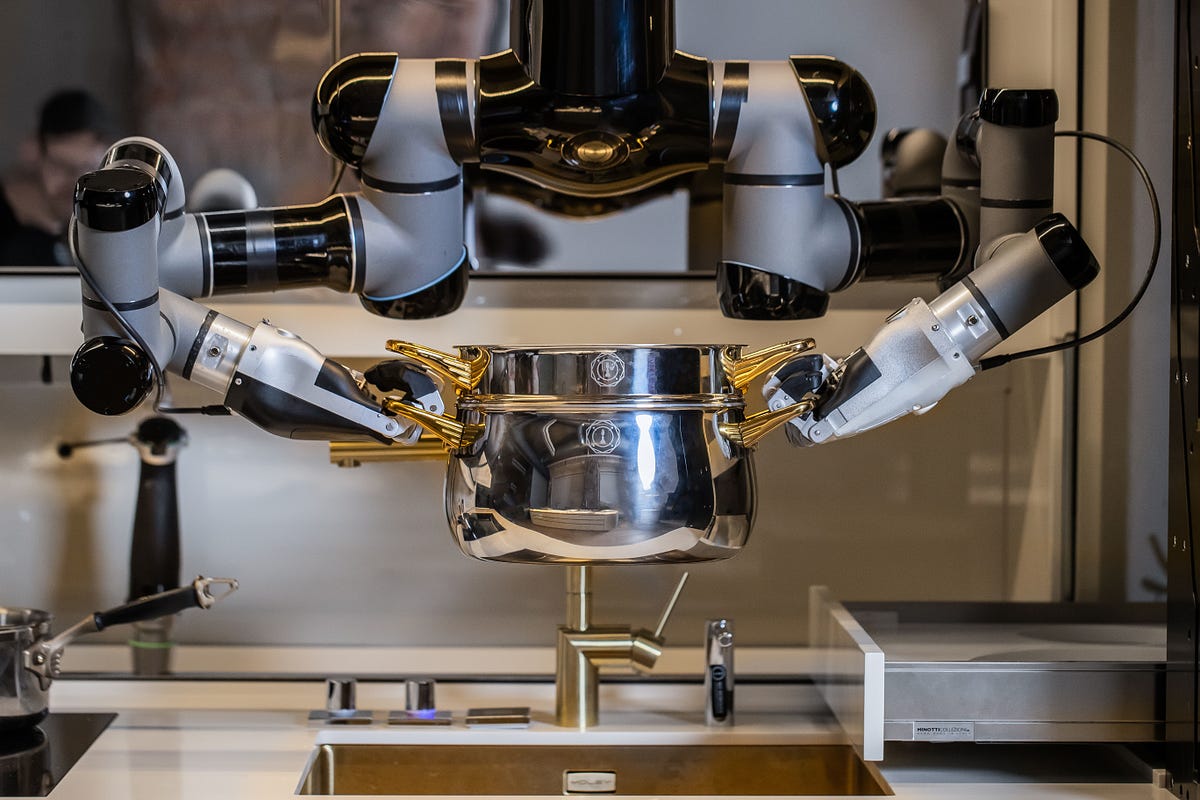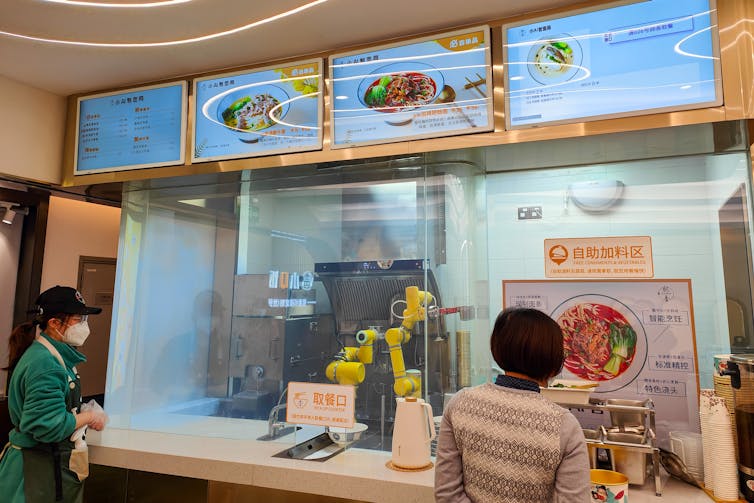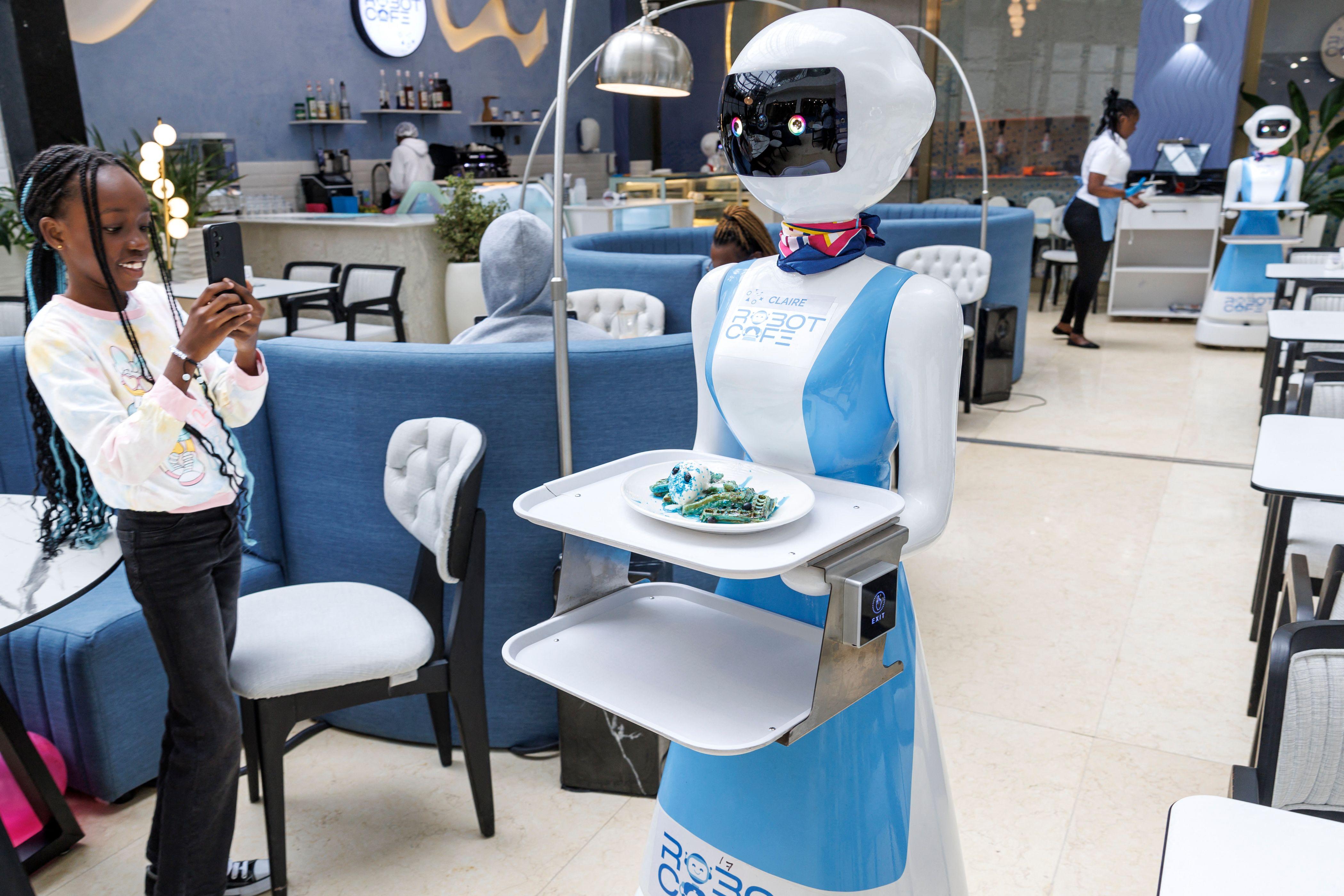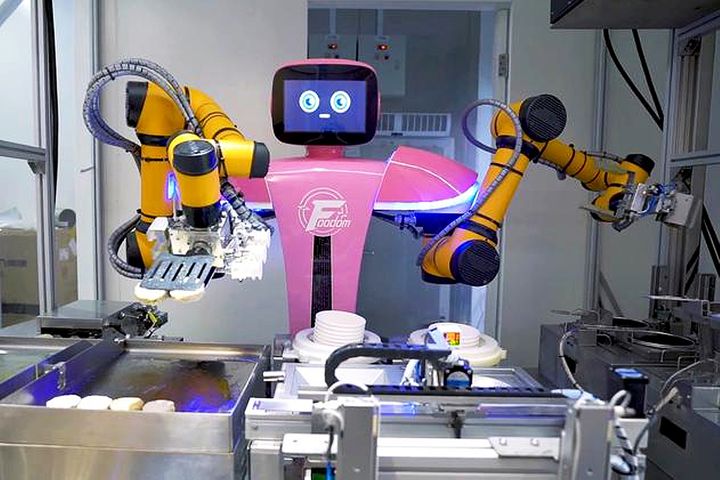Automating food preparation is no longer a distant dream but a growing reality. While we’ve seen visions of futuristic kitchens in shows like The Jetsons, the use of robots and AI in food production is now part of daily life. From flipping burgers to crafting pizzas, making sushi, and even mixing cocktails, automated kitchens are revolutionizing the food industry. But could these innovations alter society in fundamental ways?

The Rise of AI Kitchens
In many places around the world, robots are already being used to prepare meals. Companies are developing AI systems capable of creating recipes based on the ingredients available in the kitchen or the molecular compatibility of food. These technologies allow for greater precision and creativity, and can even automate the entire process for fine dining.
However, as with any new technology, AI kitchens are still quite expensive, and currently, it’s restaurants and businesses that are the primary adopters. As the technology matures, it could eventually make its way into homes, altering how we cook, eat, and even interact socially.
Convenience and Social Disruption
We’ve already seen how technological advancements can reshape society—take the microwave oven, for example. The microwave made it easier for individuals to prepare quick meals, leading to a rise in solo dining and fast food. While this convenience brought benefits, it also transformed communal meals and family interactions, prompting questions about whether AI kitchens could do the same.
The rise of automated kitchens may encourage a more individualistic approach to food. If cooking becomes a task for robots, opportunities for shared experiences like family meals or cooking together may decline. Food preparation itself, which is often therapeutic and creative, could lose its emotional and social value.

Impact on Relationships and Learning
Cooking isn’t just about preparing meals; it’s also an educational experience. From microbiology to chemistry, cooking teaches valuable life skills, such as problem-solving and creativity. The rise of AI kitchens could inadvertently erode these lessons, especially for children who may no longer have to engage in cooking or learn about the intricacies of food preparation.
Additionally, the kitchen has traditionally been a space for communication and bonding. Family members often share quality time while preparing meals together, but as robots take over, these interactions could be replaced by automation, altering the dynamics of family relationships and communication.
AI and Cultural Impact
One of the primary benefits of AI kitchens is their ability to experiment with food. AI can help invent new recipes or reimagine existing dishes. But while this could lead to culinary innovation, there are risks to cultural preservation. Traditional cooking techniques and recipes are deeply tied to cultural identities. AI may oversimplify or stereotype these traditions, leading to a homogenization of global cuisines.
Cultural diversity in food might be compromised if robots and algorithms become the gatekeepers of innovation. The personal touch of a chef or home cook, with their interpretation and creativity, could be replaced by machines following rigid algorithms. Moreover, dining experiences could lose their sense of personal connection, as robots replace human chefs in local eateries and fast-food chains.

Job Creation vs. Job Loss
AI kitchens are often touted as labor-saving devices, freeing up time for individuals and businesses. But while some jobs may be created in the tech and maintenance sectors, the food service industry—a major employer—could see significant job losses. Many in the food service sector may struggle to learn new skills or transition into different roles. This could create challenges for workers who are unable to adapt to the demands of the AI economy.
Furthermore, there’s the question of whether AI is capable of genuine creativity. While machines may be able to follow recipes, it’s unclear whether they can replicate the intuition and inspiration that human chefs bring to their craft. This lack of creativity may impact the quality and authenticity of food, similar to ongoing debates about AI in the art and music industries.
Safety and Responsibility
One of the key advantages of robotic kitchens is their potential to improve food safety. AI can help with precision in food preparation, reduce waste, and create personalized meals based on dietary needs. AI systems could help prevent foodborne illnesses by ensuring that ingredients are fresh and handled safely. However, the ability of robots to sense freshness or taste remains uncertain.
Another concern is the physical safety of automated kitchens. While robots can reduce human error, there is still a risk that malfunctions could lead to accidents, such as burns, cuts, or other injuries. With the increasing role of AI in daily life, the issue of responsibility and accountability for these errors will also need to be addressed.

Looking Ahead
As AI kitchens become more prevalent, it’s essential to consider the broader implications of this technology. Will it lead to a future where food is just another task to check off a list, or can it enhance our connections with each other, our cultures, and the world around us? Technology has the potential to disrupt the deeply human aspects of cooking and eating, so careful thought is required to navigate its development in a way that benefits society while preserving the rich cultural significance of food.
Ultimately, AI kitchens will likely continue to evolve, but the true impact on society will depend on how we balance the efficiencies of technology with the values that make food a central part of our lives.
Author
-

Jessy James is a dynamic writer with a passion for exploring the intersection of technology, culture, and lifestyle. Known for her engaging style and insightful perspectives, Jessy delves into the latest trends and innovations, offering readers a well-rounded look at how digital shifts shape our world. Her work reflects a commitment to making complex subjects relatable, keeping readers both informed and inspired.
View all posts